What happens to debt when someone dies?
Applying for probate can be a Stressfull and Exhausting task, but our specialists are here to make it feel simple. In this guide, you’ll find everything you need to know about going through probate and dealing with someone’s estate.
What happens to debt when someone dies?
- PART 19
When someone dies with outstanding debt, it needs to be repaid from the estate before beneficiaries can get their inheritance. If there isn’t enough money in the estate to pay it off, the debt is simply written off.

Need help with probate?
Our friendly probate specialists are here to help you and can offer information and a free, no-obligation quote over the phone.
Does debt die with you?
Debt isn’t automatically written off when someone dies. Instead, the money needs to be paid back from the estate. If there isn’t enough money in the estate to pay it off, the debt will be written off.
Can you inherit debt from others?
You can’t inherit debt from others. However, when the debt is part of a joint agreement (such as a joint mortgage or loan), the surviving partner will need to continue making repayments until the debt is paid. This includes things like joint mortgages, credit cards and any overdrafts with bank accounts.
Who's responsible for paying off debts after someone dies?
The executors of the will are responsible for paying off any debts after someone dies. If there isn’t a will, then this job usually falls to the administrator of the estate.
The executor or administrator can take money from the estate to pay off any debts. They may also need to sell any property in the estate before debts can be paid off in full. If there isn’t enough money in the estate to pay off the debt, the debt is written off – the executor or administrator isn’t responsible for paying off the debt out of their own money.
In what order should you pay off someone's debts after their death?
Before paying off any debts, the executor or administrator should first pay for the funeral and set aside money for probate or administering the estate. You can find out more about probate costs here.
After this, debts must be paid off in the following order:
Mortgages and secured loans: there may be life insurance to help pay off the rest of the mortgage. If not, the property may have to be sold.
Priority debts: the most common priority debts that need to be paid after someone dies are council and income tax.
Unsecured debts: credit card debt and utility bills.
How to pay off debts after someone dies
Step 1: Speak to financial organisations
The first thing you need to do is reach out to all the organisations who are owed money from the estate. They’ll be able to give you a final statement outlining any remaining debt. They’ll also be able to make sure any direct debits or standing orders are canceled.
After speaking to banks, building societies, and other financial organisations, you’ll have a clear picture of any debts owed by the estate.
Step 2: Check if they had life insurance
It’s important that you check if your loved one had life insurance. Some life insurance policies pay off the whole mortgage after someone dies, and there may be a death in service benefit. If they did have life insurance, find out the policy details and what can be claimed before repaying any debts.
Step 3: Apply for probate
If you’re an executor of the will, you can start closing down accounts and paying off debts before you have a grant of probate. If you’re the administrator of the estate, you may need to apply for probate before you can sell property, close accounts, and pay off debt. You can find out more about when probate is required here.
If you know you have to get probate and need help applying, please give our friendly specialists a call on 0808 188 9008
Step 4: Pay off the debt
Once you’ve got probate, you’re free to close accounts and sell the property. You can then pay off any outstanding debts before distributing assets to beneficiaries.
If there isn’t enough money in the estate to pay off all the debts – even after the sale of assets – the debt will be written off. This is what’s known as an “insolvent estate”.
Can you get help dealing with someone's estate?
If the estate you’re dealing with is particularly complex, you could benefit from using an estate administration service.
This may be a good idea if you’re struggling to work out exactly how much debt is owed. Estate administration can also be a good option for people who have very little free time between work and family life.
At Probate Specialist, we offer full estate administration service from just £1,899. This includes everything from tracking down accounts, to applying for probate, to paying off any debts and taxes. You can find out more about Probate, Full Administration
What's an insolvent estate?
An estate is classed as “insolvent” if there isn’t enough money to pay off all of the outstanding debts. If the debt can’t be paid off after the sale of property and other assets, it is simply written off.
How to get help paying off debt after your partner dies
If you’ve recently lost your partner and have been left with a joint mortgage, loan, or credit card to repay, you may benefit from speaking to a debt counsellor.
Debt counsellors offer professional, impartial advice that’s free of judgement. They can also help to make sure you’ve applied for all possible payouts and benefits to help with your specific situation.
You can find out more about getting advice with debt here.
Summary
Outstanding debts must be paid from the estate when someone dies.
If the debts can’t be paid, the estate becomes insolvent.
The executors of the will are responsible for organising the repayment of debts. If there isn’t a will, the next of kin is responsible for repaying any debt.
If the debt was part of a shared loan or agreement – such as a joint mortgage – the surviving partner has to repay it.
If you’re struggling to work out how much debt is owed, you can speak with a professional estate administration service. You can find out more about Probate, Full Estate Administration service here.
- Or Grant Only Probate Service here
No we are not solcitors or a lawfirm we are a new kind of company that processes the paperwork and uses solicitors to finalise everything keeping your costs to a minimum.
You can call free on 0808 188 9008 or you can call us on 0207 965 7568 local call charges apply
Probate Specialist Limited, 5th Floor, 167-169 Great Portland Street, Marylebone London, W1W 5PF
Probate Specialist Limited 126, High Street , Marlborough SN8 1LZ
No, the company is a new kind of company that completes the paperwork and then solicitors within the company do the legal work. Each of the solicitors are independently regulated by the Solicitors Regulatory Authority (SRA)
For general email purposes you can email email@probatespecialistltd.co.uk or london@probatespecialistltd.co.uk
You can also email your specialist directly on specialistname@probatespecialistltd.co.uk
Probate Specialist Limited, The Office, 21 Ferozeshah Road, Devizes, Wiltshire SN10 2JQ
Company Number: 13015149
ICO Reg Number: ZA807624
Rise to the top
Helping Our Clients
Our main focus is helping our clients. When they are in one of the most difficult times in their lives. The well-being of our clients is paramount to our success.
count on us
The Probate Experts
We have extensively trained in Probate and we believe that we have the best systems in place to deal with your probate in a fast efficient and accurate manner.
Right First Time
Best Practices
Our systems are constantly checked on a daily basis to make sure we are capable of dealing with anything that can literally be thrown at them




